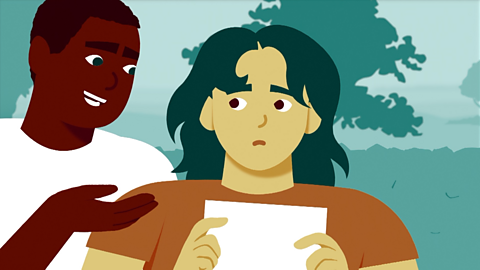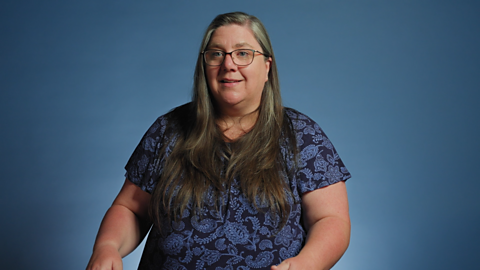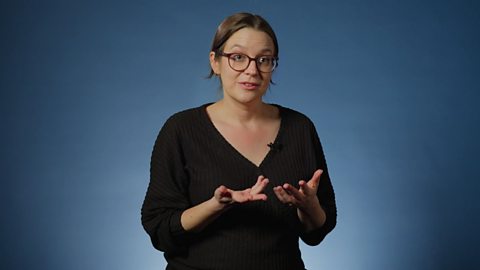Elliot:
My mum and my dad, they would shout at each other, argue.My mother might spend a bunch of time passed out because she took narcotics.The neglect with my mother grew worse and worse.
My dad was already exhibiting quite dangerous behaviours. He'd have us stand at the wall if we did something wrong. He was quite a controlling person in a lot of ways.
I was very close to ten. I was a month off from being ten years old. I went into foster care and my sister was around the age of eight.It was with a lady and she had quite controlling behaviour. She would try to control every aspect of our lives.We'd be told off if we got home even five minutes past the expected time.
We weren't allowed in our bedrooms until a certain time in the evening, so when it went dark. So every single day we had to go outside. You know it led to a lot of anxiety, it led to a lot of feeling worthless, not having a lot of confidence. I just stopped really wanting to engage with people.
After about five years, we went into respite care where you were put with a foster carer while your main foster carer goes off on holiday or they just need a break from you. And it was during that respite placement where we were treated quite well by the foster carer. This placement felt bright and happy and the foster carer was lovely to us.
That was the beginning of when I just went through foster placements. Different people, different houses, different expectations, different ways of doing things and felt like a burden that had to be put somewhere that was safe.
Definitely a lot of the anger that I had would have made things difficult, and would have made me hard to engage with. I didn't know how to deal with that anger, didn't know where to put it.
Half the classes I was in, especially around the beginning of senior school, I'd walk out crying because there was just so many emotions going on that I didn't know where they came from. I didn't know how to process them. I was just hoping someone could listen and give me some direction on the dialogue that was starting to formulate in my head around all that stuff, but no one ever sat down with me and said "I understand".
The biggest period of growth for me was meeting - he's our local participation officer for the council and he is lovely.He then gave me an opportunity to work with him in the council and it was for helping other young people have their voices heard.
That started to help me formulate my identity, that started to help me figure out more of what I wanted to do.You know there's always a part of me that has known it would have been worse to stay with my mum and dad. Of course it would have been because of some of the abuse that we were going through and I know it would have only worsened with time.
In this short animated film, Elliot gives first-hand testimony about struggling with feelings of worthlessness and anger after being moved from a neglectful home into the care system.
The film shows ways in which feelings and emotions can affect the way people behave.
This is one of three short animated films exploring stories of care-experienced and adopted young people, told by the young people themselves.
The films are presented here as part of a teacher training resource, to raise awareness of the experiences of looked-after or adopted children. They might also be used with small groups of care-experienced children as part of an intervention or pastoral care approach. Depending on your cohort, they might also be suitable to share in class. Due to the nature of the content they are most suitable for use with pupils in upper KS3 (ages 11 to 14) and above, but could also be considered (using teacher discretion) for Year 6 (ages 10 to 11).
In a classroom setting, the films could be used, individually or together, to explore and challenge perceptions and understanding of ‘family’, and to raise awareness of the experiences of children and young people in the UK care system. The direct insight into individuals’ thoughts, feelings and experiences can also be used to generate empathy towards care-experienced children, what it can be like for them adjusting to life with a new family or with carers, and the effects that these continuous transitions can have on feelings and behaviour. The films could also generate discussion around creative emotional expression as examples of narrative and creative depiction via imagery of personal feelings and emotions.
Please note that these films should not be used in isolation, but as part of a planned programme of learning within Relationships and Health education or PSHE. Teachers may want to integrate them within existing lessons about family relationships, and/or explorations of feelings and emotions connected to relationships. Use of the films should be carefully considered and not without previous viewing or planning of related discussion.
Teacher Notes
After watching this film, allow time for discussion in groupings that suit you and your pupils’ needs.
Lead discussion with impartial and non-judgmental questioning that encourages students to form their own opinions, and then follow these up for more detail. Use questioning to help pupils develop understanding and empathy for the child in the film, rather than seeing them as ‘other’. Remind pupils to use words, phrases and images in the film to inform their responses.
Examples of questions to help lead discussion:
- How do Elliot’s feelings and emotions affect his behaviour?
- Elliot says he doesn’t know where his emotions came from. Where do you think emotions come from?
- Elliot moves between lots of different carers and placements. How do you think this would affect him?
- Elliot ends up helping young people “have their voices heard”. What does this mean? Why do you think it is important? How could someone help someone else ‘feel heard’?
- Elliot says “a part of him” knows it was better to not live with his mum and dad. Why might he have these conflicting feelings? If you were Elliot’s friend, what advice would you give him about feeling conflicted in this way?
More from this Teacher Support resource:
Real testimonies from care-experienced young people
Molly's Story - Navigating school when you are adopted. video
A short animated film, using real testimony, about adoption and what it can be like navigating school and peer relationships when you are adopted.

Tai’s Story - The impact of going into foster care. video
A short animated film, using real testimony from Tai (not her real name), on the impact going into foster care can have, leaving a young person feeling disconnected from peers and afraid to express herself.

Teacher training videos
1. Defining care experience. video
A short film about the term ‘care-experienced’ and how being in care will impact a child, from the adversities faced to the impact it will have on their core beliefs and identity.

2. A trauma-informed approach. video
A short film about the impact of trauma and how a trauma-informed approach can offer support to a traumatised child within a school setting.

3. How can we do more? video
A short film about actionable next steps teachers and schools can take to support care-experienced young people, with a focus on inclusion and supporting them through transitions.

Further support
As the , schools in England and Wales must now have a designated member of staff to promote the educational achievement of looked-after and previously-looked-after children on the school’s roll, providing a person from whom advice and support can be sought.
Further information and guidance may be obtained from external organisations, including those listed below:
- is a charity connecting and supporting those across the adoption community. They have a helpline, and welcome calls from all including adoptees, adopters, kinship carers and those in their support network: 0300 666 0006
- is a charity for children in care and young care leavers. They have a care advice line to provide support and advice about the care system: 0800 023 2033
- is a charity that finds adoptive families for children, and supports children, young people and their families. They also provide training and resources for educators.
- is a charity that offers help and advice to care-experienced individuals and have .
- ≥…»ÀøÏ ÷ Action Line has more links to helpful organisations for if you, or someone you know, has been affected by issues for young people.
- ≥…»ÀøÏ ÷ Bitesize has an article for young people on how to support care-experienced friends at school.